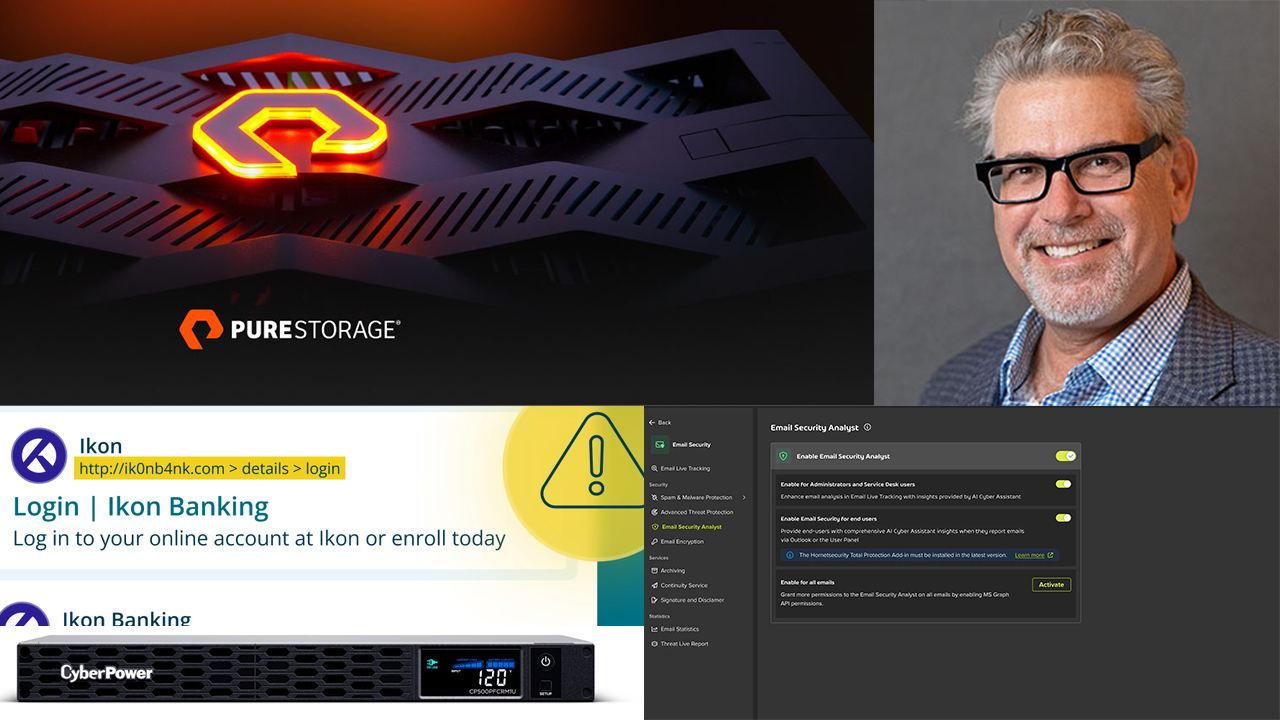In today’s digital era, with data breaches becoming an alarmingly frequent headline, the way Managed Services Providers (MSPs) back up and safeguard data is more critical today than ever. Still, it’s alarming how many MSPs remain unaware of how some backup solutions store authentication keys, and passwords in their vaults. The vendor partner holds on to a duplicate of their customer’s entire digital footprint. This begs the question: Who truly owns our backed-up data?
The way data is stored has evolved over time — and for good reason: nothing is bulletproof. Whenever we as an industry learn about new vulnerabilities, we rush to fix them. And while that’s a good thing, not everybody’s solution is equal, as there are different ways to store data.
For your customers’ sake, you must closely examine how your backup and disaster recovery (BDR) solutions manage data. Grasping data ownership can guide you in making more informed decisions on their behalf, while neglecting this aspect may unintentionally expose them to unnecessary risks.
Not all data storage methods offer equal protection for data ownership.
The Evolving Relevance of Traditional Enterprise Backup Systems
Historically, enterprise backup systems stood as the pillars of data security, grounded in on-premises servers, magnetic tapes, and hefty equipment. While these were once the “gold standard” in our industry, they now seem somewhat antiquated.
That paradigm, which is over two decades old, must grapple with the dynamic and expansive nature of today’s cloud infrastructure. Despite their trustworthiness in bygone settings, against modern cyber threats and the surge of data-driven processes, the old methodology is almost obsolete. This is especially evident when considering dated practices like hard-coded passwords in software and command lines.
Even if the backup data resides on your chosen storage platform, can you be truly confident you’re its sole gatekeeper? One must ponder if these revamped enterprise backup solutions, claiming to be cloud-centric, are merely old systems sporting a fresh facade, masquerading as cutting-edge rather than genuinely adapting to the cloud landscape.
The Double-Edged Sword of Backup as a Service: Balancing Convenience with Critical Vulnerabilities
Backup as a Service (BaaS) has emerged as a modern response to the limitations of traditional enterprise backup. By shifting the responsibility of data backup to third-party vendors, BaaS promises ease, scalability, and cost-effectiveness. However, with this convenience comes compromise.
There’s an unsettling reliance on the hope that the third-party provider operates with utmost integrity and secures data without fail. While they may attempt to achieve this, data backup vendors have increasingly become high-profile targets for cyber adversaries.
When a recovery of your data from your selected BaaS is required, the initial route is typically through the BaaS provider’s portal or operators. If this portal is automated, or more dangerously if the data is stored with the BaaS provider, it becomes a single point of vulnerability. Any cyberattack or disruption to the BaaS provider’s portal could mean an inability to access critical backups in times of need. This dependence creates a double-edged sword. While BaaS may offer convenience, it can also introduce additional risk vectors that might impede timely data recovery.
In essence, while BaaS streamlines backup processes, it does so at the potential expense of transparency, security, and sovereignty, placing businesses in a vulnerable position.
Cloud-Native Backup: Navigating the Trade-offs Between Flexibility and Security Concerns
In recent years, cloud-native backup solutions have gained traction compared to other backup methods. They integrate the best features of traditional enterprise backup and BaaS, capitalizing on the unique advantages of cloud architecture. This flexibility allows MSPs to scale storage resources and expedite data recovery rapidly.
However, the issue of security is often raised when discussing cloud-native backup. The perception is that cloud storage services are more susceptible to hacker attacks. While this concern is understandable, it’s important to note that these data centers typically offer robust security measures.
Furthermore, opting for a cloud-native backup strategy allows businesses to back up data directly to their cloud storage provider, reducing other potential entry points for cyberattacks. Unlike BaaS or alternative storage methods, the backups in this setup remain solely under your control and are stored in your own cloud space, making them accessible only to you. This eliminates the risk associated with services or portals that host data for numerous customers.
The rapidly changing data backup landscape presents opportunities and challenges for MSPs. Traditional enterprise systems, while reliable in the past, now struggle to meet modern needs. BaaS offers ease and scalability but introduces new security risks. Cloud-native backup solutions attempt to balance these factors, offering flexibility and more control over data, albeit with their own security considerations. MSPs must carefully evaluate these options to protect their clients’ data effectively, as both security and data ownership remain paramount. Failing to do so could expose clients to unnecessary risks.
SEBASTIAN STRAUB is principal solutions architect and head of global systems engineering at N2WS. He has been working in the software industry for numerous years, encompassing both the private and government sectors. With a diverse background, he has gained invaluable experience in every facet of computer-related businesses, having served as a customer, vendor, and support engineer in the trenches. Throughout his career, he has held positions at prominent organizations such as the US Department of Defense, Oracle, Dell, Quest Software, as well as lesser-known but impactful companies like ActivIdentity, HID, and Identiv.













